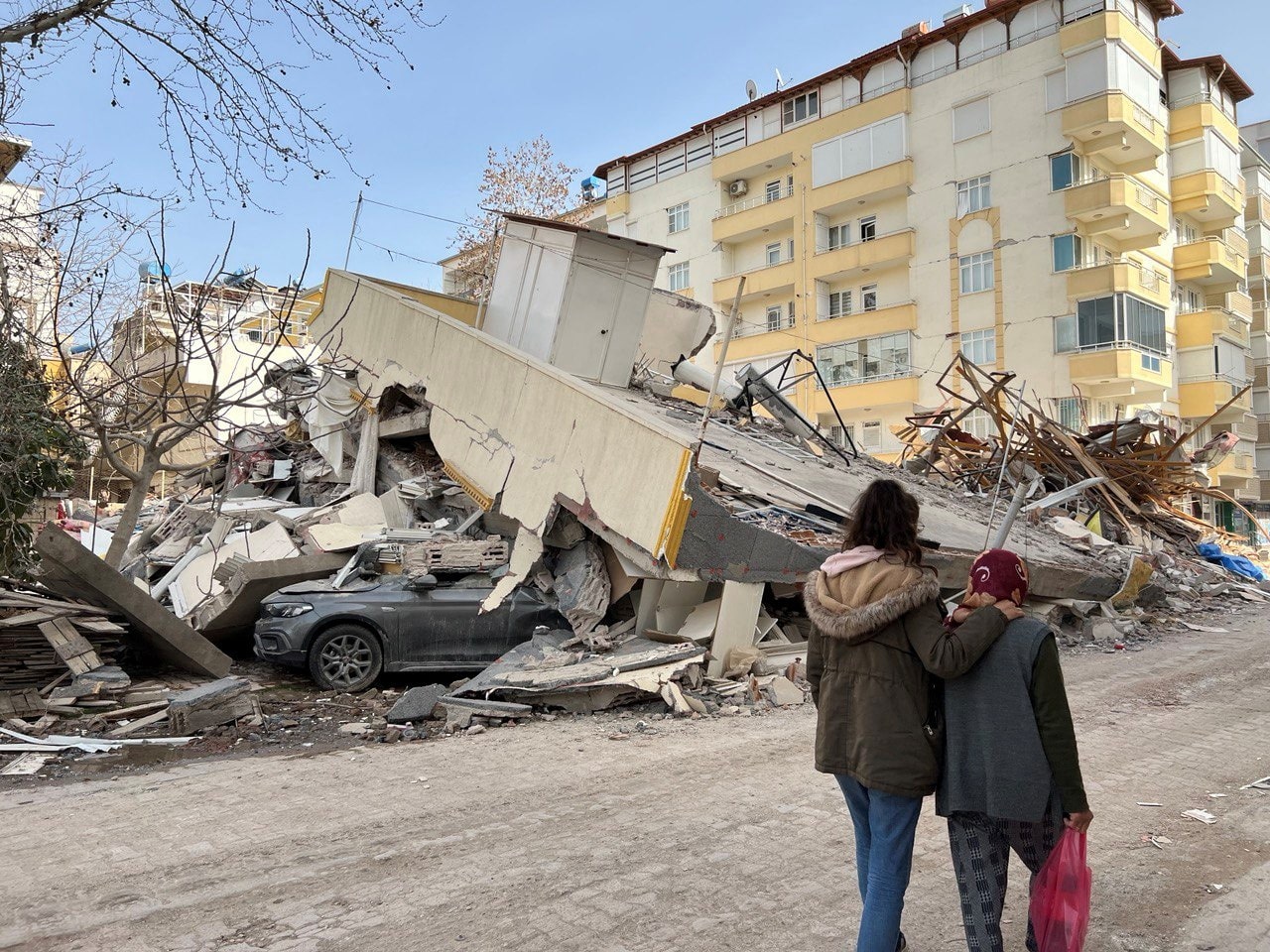Struck by a hard déjà vu, as our neighbours’ tragedies hit home, my mind travelled back to 2004. Beslan, a three-day siege, more than 1,000 hostages, 333 dead, 186 children, in the most massive murderous attack against a school in human history. A new mother back then, I just couldn’t stop crying.
On my way to the office, listening to the news on the radio, looking at the thousand-word pics on frontpages, tears were again flowing. As a journalist, I covered the briefing of the government spokesman; the man was making statements as I was wheezing and sniffing in the gardens of the presidential palace and I avoided others since I couldn’t speak without… crying.
When Beslan became an obsession, I called my bestie, the rescue line, via the ancient technology of Nokia. Chryso SOS! I don’t know what to do, I look at my baby and cry, I cry when I see other babies, I can’t even eat, I cry in my trahanas soup! A pause and like a priestess of the oracle she decided: “Turn the TV off!”
– What about the job?
– Nada! Nichts! TV, Newspapers, Radio yok! Nothing!
I woke up and instead of listening to the news I put on music. And happiness was restored!
In 2023, the earthquakes in Turkey and the train collision in Greece brought the memory back. Not as a trauma though. I happened to meet a group of young buddies, who suffered a shock much worse than mine as in the age of snapchat and Tiktok you cannot really restrict teenagers from receiving notifications. Toxicity flows out of the android and dusts the soul and the mind with poison. Half of our social life is online with at least a thousand “friends” and some freaks, whom we never met in person.
One of my young friends confided to me that after the tragedies she doesn’t go out and will not get on planes and trains ever again, while a second said she doesn’t eat and when she does manage to sleep, she has nightmares. All this from the overdose of horrific videos.
This is absurd when you consider that every day millions of strangers are murdered, abused and disappear in earthquakes, wars and car accidents. But social media is a fertile ground for anxiety and depression, especially among young people, experts say.
But how to manage today the huge amount of information, the constant flow, the clutter of news about disasters, economic collapses, earthquakes, train accidents and other tragedies? Our poor little survival instinct is exhausted in view of this avalanche.
To begin with, let’s block abusive content. When we click, knowing that the hell’s gate will open to upset us, it is like willingly asking someone to beat us up! The solution though can’t lie in “turn it all off”. It takes management, and when it comes to information the answer is the familiar, one and only answer: Media literacy, and it plays a critical role in keeping us sane.
This type of training refers to the ability to analyse, evaluate and understand media messages and their impact. By developing skills, young people can protect themselves from the negative effects of media by critically evaluating the information to which they are exposed.
One of the key ways to develop media literacy is to question the credibility of the sources. We need to learn to distinguish between credible and unreliable sources of information and the hidden agendas that may be present in information and clicks. In this way, we avoid being misled or manipulated by false information or sensationalist rumours.
Another important aspect of such literacy is the ability to recognise which stimuli are targeted at emotion. We should be taught to recognise the negative emotional impact of graphic images and detailed information about tragedies and disasters. We should be encouraged to seek positive news and balance negative information with positive experiences and stories.
Media literacy can help us develop empathy and compassion for others. By learning to understand others’ perspectives and empathise with their struggles and challenges, we can develop a more positive and hopeful outlook, even in the face of difficult circumstances.
Equally important is to be aware of our own biases and how these may influence the interpretation we give to information. We should seek out different opinions and challenge our own thoughts.
As human beings, we will be heartbroken by the pain of our fellow human beings and all creatures. In today’s world, social media is an important source of news and information, but the goal of technology and information is or should be to reiterate the importance of self-reflection, to motivate and inspire, not to make us sick and drive us to resignation and inertia.
So, let’s put an end to the junk to which the internet addicts us and actively develop our media literacy skills. Block the horror through education. This has always been the solution to all human suffering and fears.







Click here to change your cookie preferences